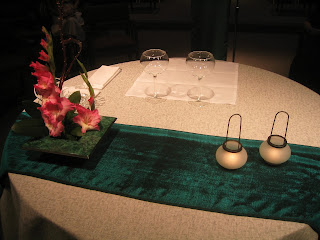
 I love the colors in this nativity scene (Piero della Francesca, c. 1470); they reminded me of a day along the Wissahickon.
I love the colors in this nativity scene (Piero della Francesca, c. 1470); they reminded me of a day along the Wissahickon. This is Holy Family Sunday!
Feast of the Holy Family Dec 30 University Chapel
The great story teller, Tolstoy, opens one of his novels with this sentence: “All happy families resemble one another but each unhappy family is unhappy in its own way.” Because we celebrate today the feast of the Holy Family, this sentence can help us understand our readings. How wise it is for us to place this feast of family between Christmas and New Year’s .... In this season families are on our minds and hearts…..
I believe that Jesus’ family was a happy one and, taking a cue from Tolstoy, his family resembles other happy families.
We judge happy families, and Jesus’ family as well, not by the absence of sorrow, dysfunction or suffering but by the capacity of the members of the family to become stronger and more supportive of one another through the joys and sorrows that they experience.
I know quite well a happy family that has suffered much: multiple divorces; a mother's death, Janet's, brought on by alcoholism; Michael's death, a young father, in a traffic accident before the birth of his one child; the collapse of a young woman, Lisa, into a persistent vegetative state by reason of a heart attack, the loss of a baby girl just days after her birth. Some of these crises were instantaneous, others endured over a long period; some are not yet resolved. This family now numbers 33 and not one member wants to miss the annual Christmas party. I know about this family because I belong to it. The laughter and sharing of life at one of these annual parties helps carry me through the rest of the year. This is a happy family.
But it is clear that the happiness of my family is closely related to the suffering that we have shared…. when Tolstoy spoke of the resemblance in all happy families, he must have meant at least this: happy families have the ability to survive as families no matter what the threat.
Today, our reading details a threat to Jesus’ family and tells the story about his family as political refugees… The vicious King Herod, a ruler over Bethlehem where Jesus’ birth takes place, emerges as a bitter enemy of this child because he hears by rumor that the child will become a king. He fears that this child threatens his grip on power. He plans to kill Jesus. In a dream an angel warns Joseph about this danger and he flees with Mary and the baby outside of Herod’s territory into the land of Egypt…
What must it have been like for this family to be refugees and to share a fate like so many of today’s families? Did Joseph wait on some dusty byway in Egypt in order to be hired as a day-laborer? Was he given a status as a political refugee or did he simply hide out under cover? The next time you see a foreign-looking cabbie or gardener or bus boy, think that Joseph must have been something like him, sticking out like a stranger in a strange land not knowing the language but determined to protect and provide for his wife and child.
This kind of fear and anxiety can so stress a young couple that they might not hold together but I believe that Joseph and Mary's fear and refugee status actually strengthen them for what is to come. The family survives this time of uncertainty and eventually returns quietly to settle in Nazareth. This is Jesus’ home and as a human being he needs to have a home. In the bosom of this family Jesus learns the centrality of the community meal and the importance of service to others. In the bosom of this family he gains the capacity to understand the power of suffering to overcome evil. The ability of his family to thrive after the stress of exile provides one small proof that the family of Jesus is one of Tolstoy’s happy families.
This feast celebrates not only the happiness of biological families but also any of the human support structures we build out of our faith, our hope and our love: the family of the church to which we all belong, the elements of the family created by so many of you in your service to young people, the family of friends when we are far away from our biological families by geography or by other circumstances, the new families that welcome us when we are in exile in any way. God comes in the flesh and needs a home and finds it even in exile, even in the dirt-poor town of Nazareth, and even in the community he starts with a few fishermen. If we know any family at all, it makes us happy to know that Jesus lived in such wonderful ones.
















































